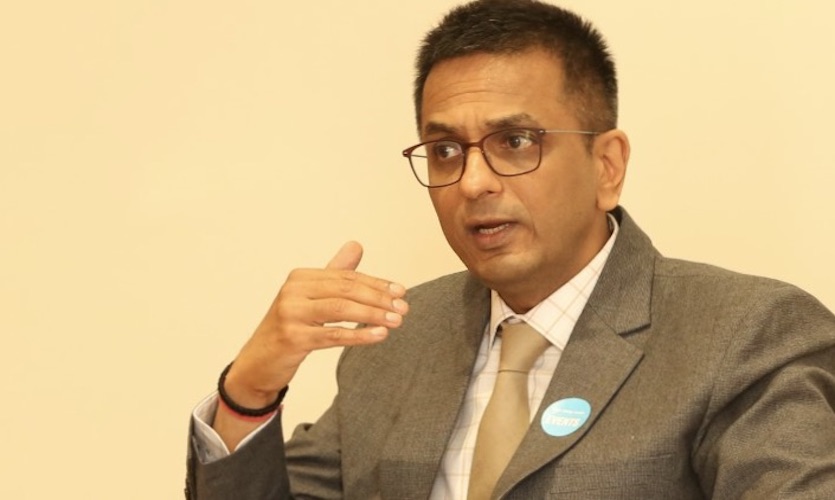Newly appointed Chief justice of India Dhananjaya Y Chandrachud, announced on Friday that matters of personal liberty will be prioritised under his leadership, and that he will grant immediate bail hearings to petitioners. In a full court meeting with all the judges of the Supreme Court, on November 15, Justice Chandrachud, who assumed the role of the CJI on November 9, established a schedule for hearing bail matters and transfers on a weekly basis.
“We had a full court and it was decided that 10 transfer petitions will be listed every day during the week. Currently, we have 13 benches in the court. So, we will dispose of 650 cases every week on the five working days. We have 3,000-odd transfer petitions at the moment. The endeavour is to finish all the pending transfer petition cases before we close for the winter vacation,” the CJI told the lawyers present in his court hall for the assignment of dates of hearing.
Transfer petitions involve marital disputes in which one spouse seeks to move the case to another jurisdiction. Cases can only be transferred from one court to another, within the same state or outside, under the Constitution and the civil and criminal procedure codes. According to CJI Chandrachud, a decision has been made to give priority to petitions filed by individuals who have been in jail or are fearing imminent detention.
“After 10 transfer petitions, all the benches shall hear 10 bail matters every day… those are the matters of personal liberty and we will prioritise them. All the courts will start their regular boards after hearing these 20 cases,” heexplained.
It is completely in sync with Justice Chandrachud’s judicial philosophy to emphasise the importance of bail matters as the head of the administration at the top court. It was his opinion that “the deprivation of liberty even for a single day is one day too many”, when granting bail to Republic TV editor-in-chief Arnab Goswami in November 2020, in an alleged suicide abetment case. He noted that courts across the country must remain the first line of defence against citizens being deprived of their freedom.
“Arrest is not meant to be and must not be used as a punitive tool because it results in one of the gravest possible consequences emanating from criminal law – the loss of personal liberty,” said the judge in July 2022, while giving bail to Alt News co-founder Mohammed Zubair in connection with criminal cases registered against him for his tweets that allegedly offended a group’s religious sentiments and incited violence.
On Friday, CJI Chandrachud informed lawyers of his efforts to streamline the listing mechanism and introduce maximum transparency in the way cases are listed in the top court, while hearing another case.
“Now that I am heading the administration, I will be as transparent as possible. I will send a matter to the most senior judge in line on a particular bench unless that judge has a short tenure and he or she expresses inability to finish a case. It’s going to be a standard procedure,” he said as he explained to a bunch of senior lawyers how a case went to the most senior judge on the bench after the retirement of his predecessor, former CJI Uday Umesh Lalit.
In addition, the CJI Chandrachud said that he does not intend to “add cases to judges’ boards at the last minute” in order to “burden” them. “I am the CJI now but I have myself faced a lot of problem because of the supplementary boards. It gives the judges a great deal of stress when they finish reading case files at 12 in the midnight and wake up the next morning only to find 10 new cases added to their board. I am cutting down on the supplementary boards.”
A listing of all matters registered on Saturday, Monday, Tuesday, and Thursday will take place on the Monday following those dates, and a listing of matters registered on Friday and Saturday will take place on the Friday following those dates. “Automatic dates will be given and lawyers will not have to mention cases for listing,” added the CJI. In addition to Wednesday’s registrations, next Friday’s cases will also be listed.
In recent years, the practice of listing cases has been a perennial source of frustration for the CJIs. Justice Chandrachud’s predecessor, Justice UU Lalit, brought in reforms during his 74-day term as the CJI, and listed several hundred cases that were in cold storage. However, former CJI NV Ramana faced criticism for being reluctant to list cases that had significant economic and political implications. During his CJI Ramana’s tenure, cases such as the validity of electoral bonds, the Citizenship Amendment Act, and the hijab ban in Karnataka’s educational institutions were not considered. It was during Justice Lalit’s brief tenure that he listed all these cases, among others.










